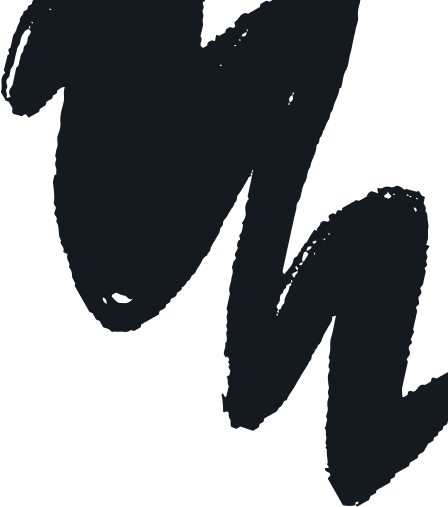.avif)
5 Questions with Tuttle Twins Creator Connor Boyack
5 Questions with Tuttle Twins Creator Connor Boyack
5 Questions with Tuttle Twins Creator Connor Boyack
When your refrigerator breaks, you don't panic because you never read the manual eleven years ago—you pull up YouTube and figure it out in real time. So why do we force children to memorize information "just in case" they might need it someday?
Connor Boyack, founder of the Libertas Institute and creator of the 6-million-selling Tuttle Twins book series, believes our entire educational approach is backward. In this conversation with OpenEd CEO Isaac Morehouse, he explains how switching from "just in case" to "just in time" learning could transform how children develop and thrive.
What's the driving philosophy behind your work with the Libertas Institute, Tuttle Twins, and other initiatives?
If I were to distill it down, it's opening minds. It's getting people to consider things they haven't considered before. It's breaking people free of the conveyor belts that they've been trapped on their whole life, the traditions of their fathers and grandfathers.
I see a lot of our work as not only helping support different options, but getting parents, getting people to realize, "My gosh, it's a new world. Look at all the abundant opportunities there are." And to step out with a little bit more confidence and courage to go in a different direction than what they may have experienced when they were a student.
You often talk about intentionality in education. What exactly do you mean by that?
You'll remember this Isaac. You contributed a chapter to the book we did a few years ago, Skip College. Though provocatively titled, most people assume the co-authors are anti-college and want everyone to stop going. The thesis of the book was never to say college is inherently bad. It was to do precisely what you're saying.
Let's be intentional. If you're intentional about going to college, there are often much better, cheaper and faster ways to get that degree. Or it may be that that's not your path and you need to go to Praxis, or a trade school, or some other model.
What I don't want for parents is to just be caught in a trap or on the conveyor belt, reactive to their environment and not taking into consideration that things are different than 30 years ago. If at the end of the day, you're going to put your kids in that same system, great—but do it with eyes wide open. It's not that any particular route is bad, but that you need to be intentional so that you know the cost-benefit analysis.
You've developed what appears to be a three-pronged approach through storytelling, entrepreneurship, and policy reform. Did you always have this vision?
I have to tell them, when I started, there was no vision. I got my start in policy work, starting Libertas Institute as a state-based think tank in Utah. That was the tiny little vision.
When my son was five years old, I found myself wanting to share with my kids what dad does as a "freedom fighter," changing laws and helping people. I looked on Amazon for children's books that would help me teach about free markets and property rights and entrepreneurship. There was nothing. So I partnered with my buddy, Elijah, who's our illustrator, and we launched the Tuttle Twins.
Again, there was no vision at the time. We literally created one book and we're like, "We don't know if this will sell. There's nothing like this on the market at all. Maybe this will be a dud,” but people liked it.
They wanted more. So we did a second and a third. Now we have like three dozen books under the Tuttle Twins brand for kids of all ages. We've sold 6 million copies. That then led to a cartoon series with Angel Studios that I never would have imagined before.
What I've discovered is along the way, I figure out what is the "adjacent possible"—meaning I'm doing well in this small sphere, which unlocks these three adjacent opportunities I can now explore.
Why is context so important for learning, and how do stories help with this?
Context has to precede content. The problem with the textbook format of learning is that it's cramming content into the minds of children who typically just do a "pump and dump"—they fill their minds with factoids, take the test, and then it's gone because it's not relevant or meaningful.
But if information has context, which storytelling provides, suddenly it sticks. There's amazing neurological research on how our brains are wired for storytelling, why humans are so receptive to information when packaged in stories.
If your kids are interested in Minecraft, build a whole educational curriculum around Minecraft. It's easier than you think and it will be far more successful than you can imagine. Why? Because you're helping your kids lean into what they're already interested in. You're speaking to them in a language that not only do they understand, but they passionately speak themselves.
When we take the content but we package it with context, comprehension goes through the roof, retention goes through the roof, and then you have those light bulb moments where suddenly they're understanding the world around them.
You describe two models of learning: "just in case" versus "just in time." Can you explain the difference?
I think there's two different models of how people learn information. One is how the traditional school system works. I call it the "just in case" model. Just in case you're going to become a rocket scientist when you're older, you need to memorize the quadratic equation right now. Just in case you become a marine biologist, you need to know that the mitochondria is the powerhouse of the cell.
The problem is that's not at all how humans learn. The way we all learn, I think, is what I call the "just in time" model. When your refrigerator breaks down, at no point do you say, "Gee, I'm so glad that 11 years ago when we bought this thing, I read the instruction manual cover to cover just in case." Of course not! Just in time for when you need to fix it, you're getting out the instruction manual, pulling up the YouTube video, calling Uncle Bob who's super handy.
In the age of AI, they don't need to be repositories of information. We need to empower our kids to be able to be actors who assemble and compile resources on their own. That's what we as adults do, right? We have a task or a goal, and just in time for that requirement, we figure it out, assemble the information, and then act.
We need to educate our kids in a way that is conducive to how we as humans actually learn. That's heavy on storytelling, but it's also this project-based, goal-oriented learning where we figure out how to assemble what we need and then move forward.
Connor Boyack is the founder of the Libertas Institute and author of the Tuttle Twins book series. Learn more at tuttletwins.com, libertas.org, and kidsmarkets.com.
Subscribe to The OpenEd Daily
Join 20,000+ families receiving curated content to support personalized learning, every school day.
.webp)
.avif)


%20(1).png)
.png)
.png)